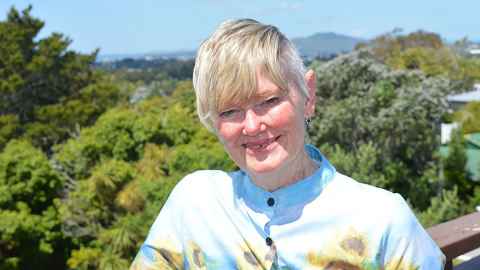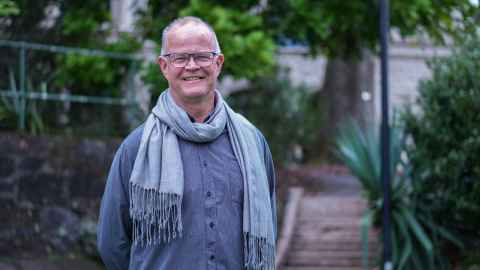An end to streaming by 2030?
31 August 2024
The impact of high teacher expectation on student achievement, based on the work of University of Auckland professor Christine Rubie-Davies, is at the heart of a new Ngāi Tahu-led initiative.

Ending streaming for all students by 2030 is the goal of Kōkirihia, an advocacy working group of around 20 organisations led by Ngāi Tahu and including Waipapa Taumata Rau, University of Auckland.
The group, which has just released its first annual report, aims to achieve equity and better outcomes for all students in New Zealand schools, and particularly for Māori.
Streaming is the practice of grouping students within the same year in classes according to their perceived level of ability, from ‘least likely to succeed’ to ‘extension’ classes.
High Expectation Teaching (HET) offers a viable alternative to the current ways of grouping students according to ability and is a proven means of lifting achievement, says Dr Brian Marsh from the Faculty of Education and Social Work, who along with Christine Rubie-Davies, represents the University within the group.
“Our colleague Christine Rubie-Davies’ research as far back as 2007 showed that students with high expectation teachers made more than two years’ academic growth in one year, compared with students in other classes who made little progress over the same year.”
Marsh says observations and interviews conducted by Rubie-Davies and her colleagues, including notable educator John Hattie, showed very different beliefs and classroom structures between these high expectation teachers and other teachers.
“A groundbreaking study in 2015 showed that all teachers could be trained to become high expectation teachers, and that when they did, student achievement improved significantly,” says Marsh.

The approach they advocate, which the Kōkirihia group has adopted as a set of guiding principles, has three key factors, he says.
“High expectation teaching involves not streaming students for ability, so having mixed ability groups wherever possible, coupled with high-level learning activities for all students,” he says.
“It also recommends fostering a warm, supportive class climate where teachers form close relationships with all students but where peers also support each other, and using skill-based goal setting, coupled with teacher monitoring and feedback, to develop student motivation and autonomy.”
Both goal setting and feedback have large effects on student learning, as does a supportive teacher-student relationship, says Marsh.
He notes that according to substantial research in Aotearoa and elsewhere, streaming widens existing educational inequalities and doesn’t raise achievement overall, and most importantly affects how students view themselves as learners.
“Students in low streams come to believe that they are not academically capable, and there’s a lot of shame in that, whereas students in higher streams start to feel entitled to be there by virtue of their own hard work, whereas neither might be the case.”
He says in New Zealand, streaming, which is still widespread, particularly discriminates against Māori, Pacific and students from lower socio-economic backgrounds who are over-represented in low streams.
“However, regardless of ethnic or socio-economic identity, any student in a low stream is trapped on a low-achieving pathway that is difficult to escape from."

An argument made for streaming is that teachers can struggle with the complexity of mixed classes and find it easier to teach streamed groups, and that more advanced students are not “held back” by less advanced peers.
However, says Marsh, John Hattie’s research showed that peer tutoring (students helping each other) has a strong positive impact on the learning of the tutor as well as the person being tutored by their peer.
“We must think about the future impact of skilled teachers, prepared thoroughly for high expectation teaching, who know their students well and who can provide differentiated material to ensure all are working on material appropriate to their level in a certain subject.”
The Kōkirihia annual report notes a 23 percent decline in streaming between 2015 and 2022 in Aotearoa.
He says the group’s next steps are to publish a set of ‘toolkit’ web resources, survey more teachers on streaming practices, organise a webinar for teachers and school leaders and develop a database of schools committed to ending streaming.
Organisations within the group include the Teaching Council of Aotearoa New Zealand, the New Zealand Principals’ Federation, the Universities of Otago, Waikato and Massey, the Education Review Office, NZEI Te Riu Roa and Te Whakarōputanga Kaitiaki Kura o Aotearoa - New Zealand School Boards Association.
Media contact
Julianne Evans | Media adviser
M: 027 562 5868
E: julianne.evans@auckland.ac.nz